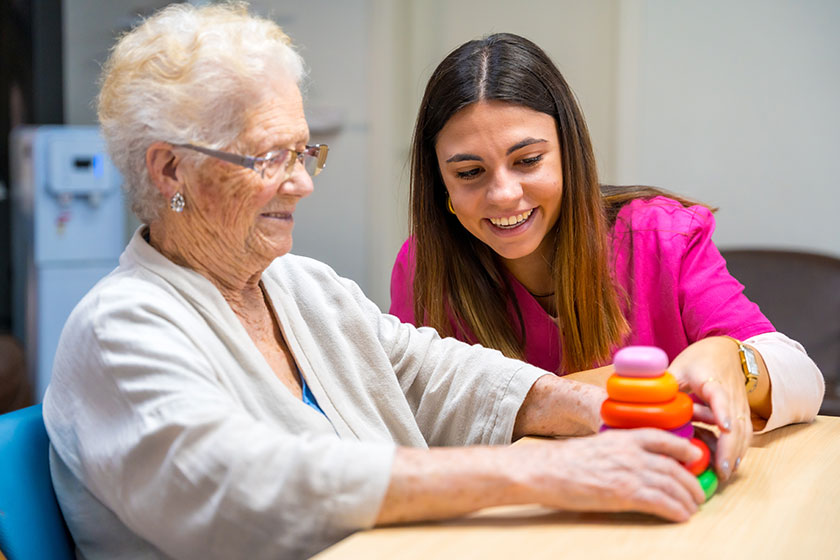When it comes to assisting parents with dementia, navigating the delicate balance between providing help and respecting their autonomy can be challenging. This condition affects not only memory but also the ability to perform daily tasks, making compassionate support essential. Here are five tips for offering help to your parents with dementia, ensuring you do so with kindness and respect.
Understand Their Perspective
To effectively support your parents, it’s crucial to strive to understand how dementia affects their perception of the world. This condition can cause confusion, fear and frustration as cognitive abilities decline and memory loss progresses. Educating yourself on the symptoms and progression of dementia can provide valuable insights into your parents’ experiences and help you empathize with their challenges.
Acknowledge the feelings and emotions your parents may experience due to dementia, such as confusion, anxiety or sadness and validate their experiences without judgment. Show patience and compassion in your interactions, recognizing that their behaviors and reactions are influenced by the changes occurring in their brain.
Establish a Routine
Establishing a routine is essential for parents with dementia as it provides structure, predictability and stability in their daily lives. A consistent routine can help reduce confusion, anxiety and agitation, promoting a sense of security and well-being.
Start by establishing regular daily routines for activities such as waking up, meals, medication reminders and bedtime. Keep these routines consistent and predictable, as familiarity can help your loved one feel more comfortable and in control.
Incorporate activities that your parent enjoys and finds meaningful into their daily schedule, such as gentle exercises, hobbies or social interactions. Engaging in familiar and enjoyable activities can help maintain cognitive function, boost mood and promote a sense of purpose.
Use visual cues and reminders, such as calendars, clocks or written schedules, to help your parent understand and follow their daily routine. Simple visual aids can be helpful for individuals with dementia who may have difficulty processing verbal instructions or remembering tasks.
Simplify Communication
Communicating with a parent who has dementia requires patience and simplicity. Use clear, concise language and maintain eye contact to ensure they can focus on the conversation. Avoid open-ended questions that may be overwhelming; instead, offer choices between two options. Non-verbal cues such as gestures and facial expressions can also be effective in facilitating understanding.
Adapt the Living Environment
Creating a safe and comfortable living environment is crucial for parents with dementia. Simplifying their living space is essential to minimize potential hazards and ensure their well-being.
Start by removing clutter and unnecessary items from their living area to reduce the risk of falls or accidents. Clear pathways and eliminate tripping hazards to create a safe environment for navigation.
Install grab bars in key areas such as the bathroom to provide support and stability for your loved one while bathing or using the toilet. Additionally, consider adding non-slip mats in the bathroom and shower to prevent slips and falls.
Ensure good lighting throughout the house, especially in hallways, staircases and frequently used areas. Adequate lighting helps prevent confusion and disorientation, making it easier for your loved one to navigate their surroundings safely.
Use labels or pictures to help your parent with dementia identify and locate important items, such as the bathroom, bedroom or kitchen. Labeling drawers, cabinets and storage containers can also aid in organization and promote independence.
Regularly assess the living environment for any potential hazards or changes in your loved one’s needs, and make adjustments accordingly. By creating a safe and supportive living environment, you can help enhance your parent’s quality of life and minimize the risk of accidents or injuries associated with dementia.
Seek Support When Needed
Caring for a parent with dementia is not something you have to do alone. There are numerous resources available, including support groups, professional caregivers and Memory Care communities, that can provide advice and assistance. Seeking support can help you manage the challenges of caregiving while ensuring your parent receives the best possible care.
Our retirement community understands the unique challenges faced by individuals living with dementia and their families. We offer senior living options tailored to meet the diverse needs of our residents. Our team is trained in the latest dementia care techniques, ensuring that we provide compassionate support that respects the dignity and individuality of each person we serve.
Our secure, welcoming environment is designed to promote comfort and ease, featuring spaces that are easy to navigate and activities that engage and enrich our residents’ lives. From personalized care plans to senior living activities that support cognitive function and social interaction, we’re dedicated to enhancing the well-being of our residents. By choosing us, families can trust that their loved ones are in caring, capable hands, receiving the attention and respect they deserve, all while enjoying the warmth and hospitality that define our community.






